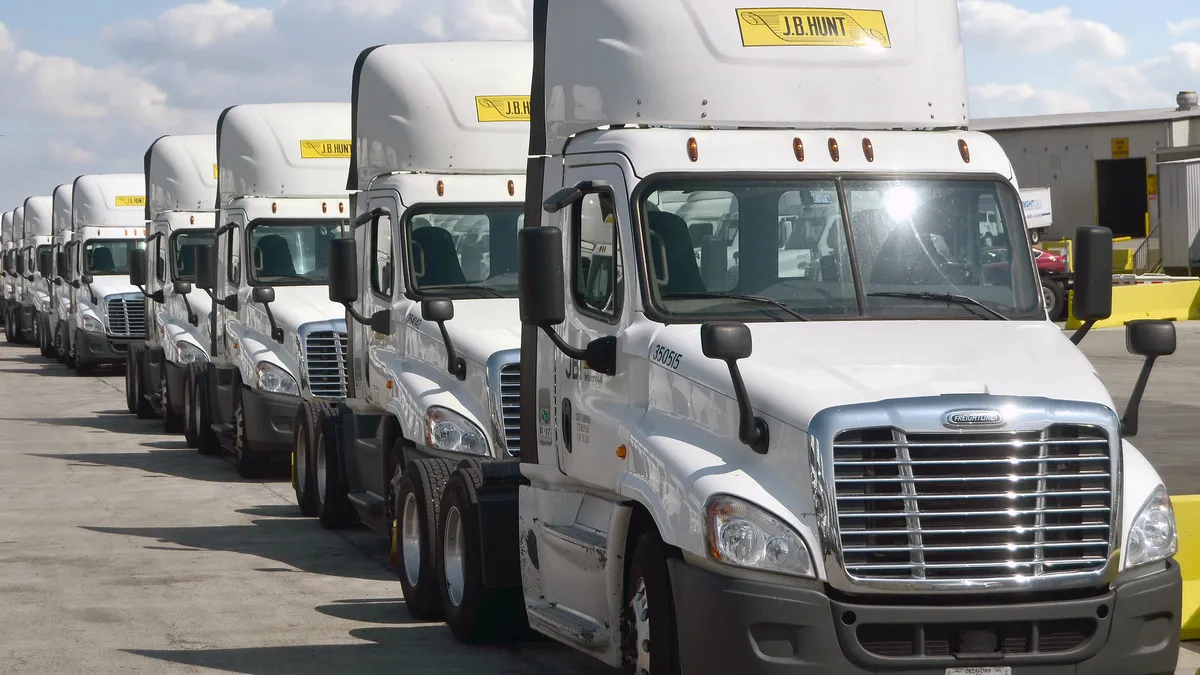Dive Brief:
- J.B. Hunt's top concern, aside from the freight swings caused by closed stores and rushes on essential goods brought on by the coronavirus, is shippers' ability to pay their bills, said interim CFO John Kuhlow on a Tuesday earnings call with analysts.
- "We're beginning to see an increase in certain customers reaching out to discuss liquidity concerns, and while we understand their liquidity issues, we have to enforce our terms that we have agreed to," Kuhlow said. Customers shipping goods in categories deemed "non-essential" by state governments with restrictions on retail activity are most at risk, said President of Dedicated Nick Hobbs. Volume in some retail segments was down 11% in the first quarter, with office furniture and automotive suppliers showing similarly down. Food shipments were up 16% in the quarter, Hobbs said.
- J.B. Hunt executives said they were not interested in using price to take market share amid the sharp demand shifts brought on by the COVID-19 outbreak, but did not rule out making opportunistic pricing moves the company would make in a normal environment.
Dive Insight:
Spot market dry van, flatbed and reefer rates were up in March from February, but flat to down compared to March 2019, according to DAT. Peggy Dorf, senior market analyst at DAT Solutions warned that the period of surging demand for trucking services may be coming to an end as the reality of shuttered retail stores sets in.
"Consumers and supply chains began to adjust to disruptions caused by the COVID-19 pandemic, and the urgency to replenish inventory and secure available capacity on the spot market fell significantly," Dorf wrote in emailed comments Monday.
J.B. Hunt's spring bidding process is continuing at about 80-90% of expected customer involvement levels, said Chief Commercial Officer and President of Highway Services Shelley Simpson. But J.B. Hunt is starting to see slowing consumption set in. Year-over-year growth in intermodal volume slowed from 7% in January to 5% in March with "a more meaningful drop off in volumes in late March, which has continued thus far into April," said Simpson. And as trucking demand calms down, so too do retailer revenues.
Conversations with shippers regarding payment terms are "objective and crisp," explained Kuhlow, but it's shippers who the carrier hasn't heard from yet that are of concern, according to Simpson.
"I think our customers understand the necessity of us keeping our drivers and maintenance employees there on the frontline ready for our customers. That has been viewed favorably from them," said Simpson.














